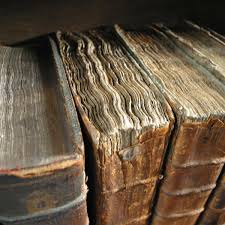“Every time a friend succeeds, I die a little,” said Gore Vidal.  “Author Envy,” by William Giraldi, appears in the new issue of Poets & Writers Magazine. I couldn’t imagine what else could be said about this subject, and I was right, but Giraldi did compile an impressive collection of other writers talking about jealousy, from Francis Bacon in 1625 to Angus Wilson and Cynthia Ozick. “Spend enough time around writers, Giraldi writes, “and you’re certain to hear it. Often it’s barely caught at the tail of a comment, or in certain murmurings, or else heard in an outright hiss or snarl. It can wear the cloak of sarcasm or ridicule or calm contempt.” “Writers, like academics,” he observes, “are easily pricked by envy because the criteria for success seem bewilderingly arbitrary, contradictory, even downright unliterary. . . . There’s often an echoic canyon between excellence and success.”
“Author Envy,” by William Giraldi, appears in the new issue of Poets & Writers Magazine. I couldn’t imagine what else could be said about this subject, and I was right, but Giraldi did compile an impressive collection of other writers talking about jealousy, from Francis Bacon in 1625 to Angus Wilson and Cynthia Ozick. “Spend enough time around writers, Giraldi writes, “and you’re certain to hear it. Often it’s barely caught at the tail of a comment, or in certain murmurings, or else heard in an outright hiss or snarl. It can wear the cloak of sarcasm or ridicule or calm contempt.” “Writers, like academics,” he observes, “are easily pricked by envy because the criteria for success seem bewilderingly arbitrary, contradictory, even downright unliterary. . . . There’s often an echoic canyon between excellence and success.”  Lord knows it’s true. Poetry (all art, for that matter) can be elevated to public attention partly by the writer’s influential connections, partly by happenstance, partly by the novelty and/or timeliness of the work. Is there such a thing as “good” and “bad”? Certainly. That’s a whole nuther subject. But sometimes it takes several generations to sort that out. (I think that even the ephemeral, though, feeds the general air that creates good and more lasting work.) What Giraldi doesn’t spend much time on is what to do about this envy. He says it’s mostly self-pity. If we had more self-esteem, he says. . . .
Lord knows it’s true. Poetry (all art, for that matter) can be elevated to public attention partly by the writer’s influential connections, partly by happenstance, partly by the novelty and/or timeliness of the work. Is there such a thing as “good” and “bad”? Certainly. That’s a whole nuther subject. But sometimes it takes several generations to sort that out. (I think that even the ephemeral, though, feeds the general air that creates good and more lasting work.) What Giraldi doesn’t spend much time on is what to do about this envy. He says it’s mostly self-pity. If we had more self-esteem, he says. . . .  And what is the magic formula, pray tell, for developing self-esteem? Working hard, studying the craft. But chances are, we’re just plain not as good as a lot of writers, dead and alive. And chances are our work is going to run through a shredder or be composted before our lives are over. Yes, but, we wash dishes every day, we sweep the floor, we go for walks. These activities aren’t useless because they pass away. Nothing lasts forever. Rachel Zucker, in an essay in the May/June American Poetry Review, writes, "Rethink the virtue of timelessness. Do you want to write a poem . . .that will last forever? Really? Like plastic? Like toxic waste?" She also quotes the end of a poem by Alice Notley: "You are not great. You are life." Easy to say. But the point of writing is to be heard. The broader the hearing, the more satisfying for the writer. And considering that no writer I know is ever sure of his or her own work, the more praise, the better. I wouldn’t blame us for that. We can’t be sure of what we write because we’re making something new. Criteria of excellence are in large part based on what’s already been written. So the new has to face immense uncertainty.
And what is the magic formula, pray tell, for developing self-esteem? Working hard, studying the craft. But chances are, we’re just plain not as good as a lot of writers, dead and alive. And chances are our work is going to run through a shredder or be composted before our lives are over. Yes, but, we wash dishes every day, we sweep the floor, we go for walks. These activities aren’t useless because they pass away. Nothing lasts forever. Rachel Zucker, in an essay in the May/June American Poetry Review, writes, "Rethink the virtue of timelessness. Do you want to write a poem . . .that will last forever? Really? Like plastic? Like toxic waste?" She also quotes the end of a poem by Alice Notley: "You are not great. You are life." Easy to say. But the point of writing is to be heard. The broader the hearing, the more satisfying for the writer. And considering that no writer I know is ever sure of his or her own work, the more praise, the better. I wouldn’t blame us for that. We can’t be sure of what we write because we’re making something new. Criteria of excellence are in large part based on what’s already been written. So the new has to face immense uncertainty.  It has always been thus. The church imprisoned Galileo for heresy for his crazy idea that the earth revolves around the sun. Climate change? Some people would rather see us all drown or die of starvation than admit that humans are changing their environment. Back to the question of how we writers can handle envy. Some thoughts:
It has always been thus. The church imprisoned Galileo for heresy for his crazy idea that the earth revolves around the sun. Climate change? Some people would rather see us all drown or die of starvation than admit that humans are changing their environment. Back to the question of how we writers can handle envy. Some thoughts:
- Admit the envy to myself. Fully, completely. Sample inner dialogue: “I am so jealous of her Guggenheim I could scream.” “His poems aren’t half as good as mine, but he just got yet another NEA award.” Watch how it makes me feel. Don’t try to push the feelings away. Don’t try to justify them. They’re just feelings. You didn’t make them happen. They just arose. They have a right to express themselves.
- Ask myself deeply why I write. See if I can NOT write. Stop for a while. If I then return to the page, well then, I must write because it is my nature to write. That nature is to be honored. This is what might be called self-esteem.
- Read other people’s work humbly, to learn from it, rather than to find fault. I’ve learned a great deal from work I don’t really like much.
- Turn the gaze down toward the page, not out toward the imaginary applause.
- Wish all writers well, as a matter of religious practice. Writing is hard work. It’s intensely lonely work. No one succeeds without dragging behind her the ragged hem of failure.
I do think a writer who’s working hard doesn’t have much time to feel jealous, but of course it flushes over us sometimes. If we try to push it away, we can start a cycle of dishonesty that can cause us to lose track of our real self and contribute to the development of a false self. And bedrock honesty is a major criterion for good work. Furthermore, nobody ever said good writing is full of sweetness and light. It might be full of the rage of jealousy, or of anger, or bitterness, or, or, or. . . .
